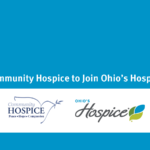
Journal of American Medical Association Study Shows Benefits of Hospice Care for Cancer Patients
New research published in the Journal of the American Medical Association reinforces the benefits of hospice care for patients with cancer facing a poor prognosis. The study, led by Dr. Ziad Obermeyer, a physician at Brigham and Women’s Hospital in Boston, found cancer patients in hospice are less likely to be hospitalized, be admitted to the intensive care unit or undergo invasive procedures. The study included data from nearly 40,000 Medicare patients with cancer who died in 2011.
The study also concludes that healthcare costs in the last year of life were about $9,000 lower per hospice patient. Furthermore, nearly 75% of non-hospice patients in this study died in hospitals or nursing homes, compared to 14% of hospice patients. The findings highlight the need for frank discussions between physicians and patients about realistic expectations for care at the end of life.
“There is a lot of evidence that a lot of people don’t have these conversations,” said Dr. Obermeyer. “They get sucked into this intense care option without even talking about it.”
The National Hospice and Palliative Care Organization has long supported reimbursement to physicians for facilitating advanced planning discussions, which is also a key recommendation from the Institute of Medicine in its report “Dying in America”.
NHPCO also advocates for concurrent care, a model of healthcare delivery that would not require patients to forgo all curative treatment to access hospice services.
“We know that many people access hospice care too late to fully take advantage of all this team-based, patient and family-focused model of care can offer,” says J. Donald Schumacher, PsyD, President and CEO of NHPCO. “While patients with cancer still make up more than a third of all those cared for by hospice providers, their lengths of stay in hospice are among the shortest. This points to the desperate need for clinicians treating cancer to have conversations about palliative care and hospice.”
The publication of this new research in JAMA follows on the heels of the Institute of Medicine (IOM) report, “Dying in America” and recommendations from the American Medical Association (AMA) to the Centers for Medicare and Medicaid Services (CMS) regarding the activation of reimbursement codes to allow Medicare to pay for such conversations. In recent weeks, CMS indicated that the agency intends to solicit additional comments from the public. In the meantime, advance care planning discussions are only reimbursable during the initial ‘Welcome to Medicare’ preventive visit but not for any subsequent annual visit.
“The hospice community continues to be disappointed in Medicare’s lack of leadership in this area,” said Schumacher. “The medical consensus tells us clearly that these end-of-life care conversations are necessary in order for patient wishes to be expressed and honored. Yet, CMS will only reimburse for them when a patient first joins Medicare, typically the healthiest he or she will be as a beneficiary. It defies reason that reimbursement is not available for physicians to take the time for these vital and delicate discussions later on.”
According to the National Council on Aging, 10,000 baby boomers will become Medicare eligible every day this year. The time has come for the federal government to take action on concurrent care and advance care planning and meet the needs of Americans as they approach the end of life.
Author Profile
Latest entries
 Media ReleaseJanuary 1, 2024Community Hospice to Join Ohio’s Hospice Strategic Partnership
Media ReleaseJanuary 1, 2024Community Hospice to Join Ohio’s Hospice Strategic Partnership #CelebratingLifesStoriesNovember 21, 2023Priesthood, Shelters and Hospice Care: A Life of Service for Barbara Parini
#CelebratingLifesStoriesNovember 21, 2023Priesthood, Shelters and Hospice Care: A Life of Service for Barbara Parini News and UpdatesJuly 28, 2023Ohio’s Hospice Volunteer Experiences Hospice Care as a Loved One
News and UpdatesJuly 28, 2023Ohio’s Hospice Volunteer Experiences Hospice Care as a Loved One News and UpdatesJuly 19, 2023The Not-for-Profit Difference
News and UpdatesJuly 19, 2023The Not-for-Profit Difference

